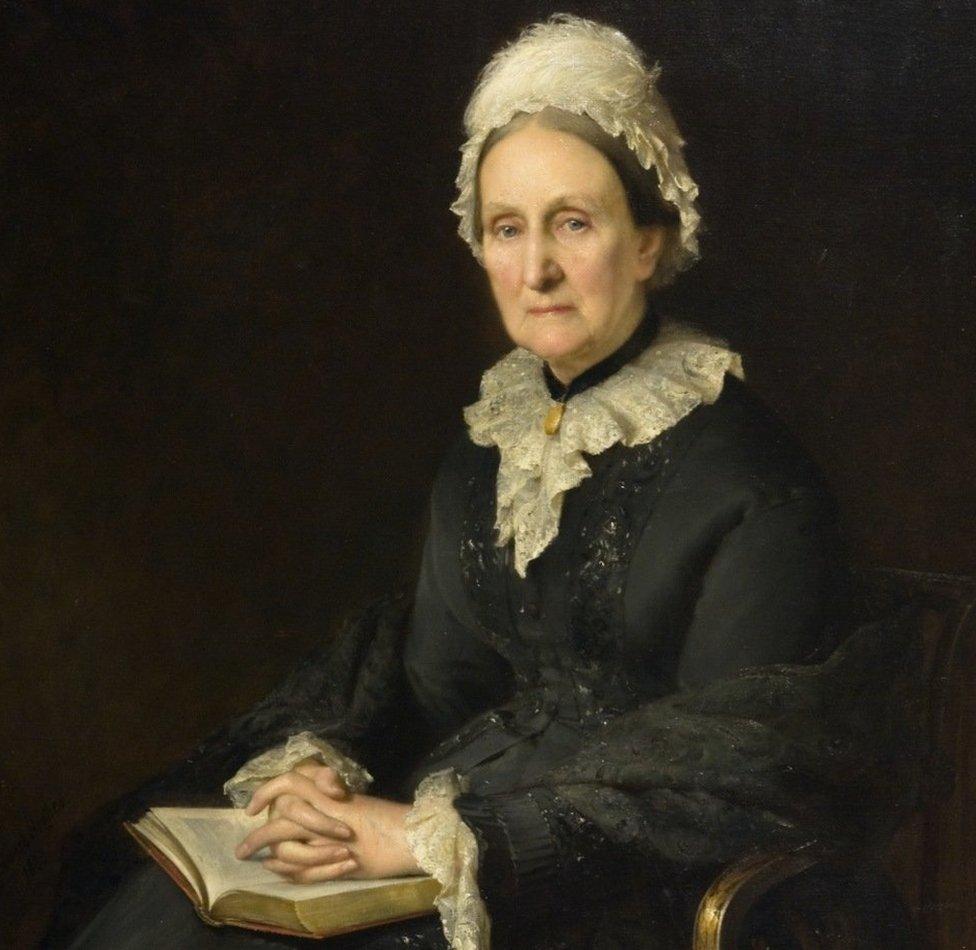Dundee University's slave trade links highlighted
- Published

University College Dundee's main benefactor was Mary Ann Baxter, whose wealth came from the family linen company
The founders of the University of Dundee were indirectly linked to the slave trade, according to a new report.
Formerly University College Dundee, the institution was founded in 1881 with a donation of £140,000 from Mary Ann Baxter and her cousin John Boyd Baxter.
While the Baxters did not trade in or own slaves themselves, their fortune came indirectly from slavery.
They produced and exported goods to transatlantic markets, particularly clothing worn by enslaved people.
Dr Cassandra Gooptar wrote the Founders Project final report, external after spending three months researching the role the city played in Britain's imperial past.
It comes after a new city walking trail also made the link between the University of Dundee and the slave trade.
Dr Gooptar's report confirmed that, while the university's founders played a leading role in widening access to education for students of both sexes, the institution was supported indirectly by the slave trade.
Principal and vice-chancellor Prof Iain Gillespie said: "This report offers an important opportunity to acknowledge an underexposed part of our history, and to recognise that we must all play a part in developing our collective memory.
"Although the university never owned enslaved people or traded in the goods they produced, it is now clear we received significant financial support from people whose wealth came indirectly from slavery.
"These histories have deep legacies and impact contemporary realities on campus and in wider society. It's important that we each play a part in addressing these issues.
"Collective engagement will allow us to do what we do best - educate ourselves, share the truth in all its complexity, and move forward together."

Find more stories about Tayside and Central:

Nyasha Mutembwa, president of Dundee University students' association, said: "Being someone that has been at this university since 2017 and now being in the position of the first black female president of the association, it has been quite the journey to learn about this city's history and people.
"As president of the African Caribbean Society in 2020, I had the pleasure of connecting with Cassandra and learning more about this project.
"I think this is a stepping stone for our university community to address historical issues and see how best to implement change in the world that we now live in.
"Being one of the many black students at this university I can only hope this new chapter allows us to reflect, educate and change for the better."
The university has agreed on a series of actions in response to the report, including developing a more inclusive curriculum, discussing memorialisation, and supporting black, Asian, or minority ethnic (BAME) businesses.